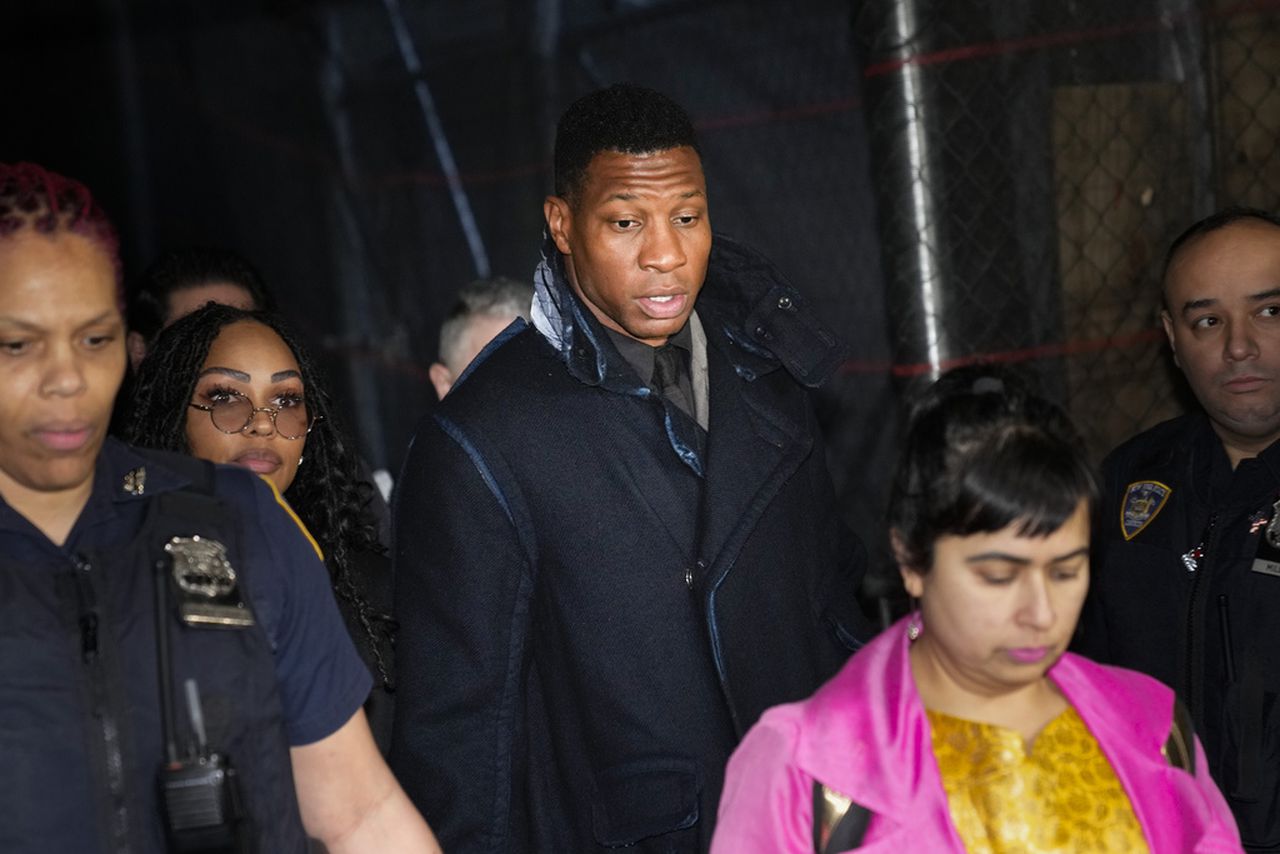Actor Jonathan Majors has been dropped by Marvel Studios and the Walt Disney Co. after being found guilty of assaulting his former girlfriend.
The conviction came after a two-week trial that was expected to solidify Majors’ status as a rising star in Hollywood.
However, the verdict had the opposite effect, resulting in immediate termination from all upcoming projects.
A Manhattan jury convicted Majors, 34, of one count of misdemeanor assault and one count of harassment violation.
He was acquitted of a different assault charge and aggravated harassment.
When the verdict was read, Majors remained stoic, showing no immediate reaction.
He left the courthouse without making any comments.
According to an anonymous source close to the studio, both Marvel and Disney made the decision to drop Majors from future projects immediately following the conviction.
This is a significant blow to Majors, who was set to play a central role as the antagonist Kang in the Marvel Cinematic Universe.
He had already appeared in “Ant-Man and the Wasp: Quantumania” and the first two seasons of “Loki.”
His next project, “Avengers: The Kang Dynasty,” was scheduled for release in May 2026.
Majors, known for his roles in “The Last Black Man in San Francisco,” “Devotion,” and “Da 5 Bloods,” was considered one of the fastest-rising stars in Hollywood.
He attended the Yale School of Drama and gained critical acclaim for his performance in “Magazine Dreams,” which premiered at the Sundance Film Festival in January.
However, the film was subsequently removed from its release schedule by Searchlight Pictures, a distributor owned by Disney, prior to Majors’ trial.
Manhattan District Attorney Alvin Bragg commented on the trial, stating that it revealed a pattern of abuse and coercion leading up to Majors’ assault and harassment of his girlfriend.
Majors’ sentencing is scheduled for February 6th, and he could face up to a year in jail for the assault conviction.
However, probation or alternative non-jail sentences are also possible.
The charges against Majors stemmed from a dispute between him and his girlfriend, Grace Jabbari, which began in a chauffeured car and escalated onto the streets of Manhattan in March of last year.
Jabbari, a 30-year-old British dancer, accused Majors of attacking her inside the car, including hitting her in the head, twisting her arm, and fracturing her middle finger.
She described experiencing excruciating pain.
Majors’ defense team claimed that Jabbari was the aggressor, alleging that she became jealous after discovering a text message from another woman on his phone.
They argued that Majors was only trying to retrieve his phone and ensure his safety.
Throughout the trial, Majors carried a gold-leaf Bible, greeted his family members and current girlfriend, actress Meagan Good, with hugs, and often appeared impassive, although he shed tears when his attorney, Priya Chaudhry, made a plea for his innocence.
The trial shed light on Majors’ troubled relationship with Jabbari, whom he met while filming “Ant-Man and the Wasp: Quantumania” two years ago.
Prosecutors presented text messages showing Majors attempting to dissuade Jabbari from seeking medical treatment for a previous head injury, warning her that it could lead to an investigation even if she lied about it.
Additionally, audio recordings were played where Majors referred to himself as a “great man” and questioned whether Jabbari could meet the standards set by the spouses of Martin Luther King Jr. and Barack Obama.
Majors’ defense team argued that Jabbari had secretly recorded him as part of a plot to ruin his career.
During her emotional testimony, Jabbari described Majors as excessively controlling and prone to violent outbursts that left her fearing for her safety.
Security footage presented by the prosecution showed Majors forcefully pushing Jabbari back into the car after the initial altercation.
Prosecutors characterized this action as manhandling.
Majors did not take the stand in his defense, but his attorney argued that Jabbari had engaged in revenge-partying and used his credit card to buy expensive Champagne for strangers at a club, despite claiming to have an injured hand.
The morning after the incident, Majors found Jabbari unconscious in their Manhattan penthouse’s closet and called the police.
He was arrested at the scene, while Jabbari was taken to a hospital for treatment of her ear and hand injuries.
Chaudhry accused the police and prosecutors of disregarding Majors’ claims that he had been injured during the altercation.
In closing arguments, prosecutor Kelli Galaway emphasized the seriousness of domestic violence and countered the defense’s suggestion that Jabbari was seeking revenge.
She stated that Majors had employed a familiar tactic used by abusers to portray their victims as the aggressors.
The jury ultimately agreed with the prosecution, leading to Majors’ conviction.































